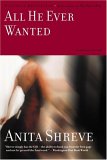Summary | Excerpt | Reading Guide | Reviews | Readalikes | Genres & Themes | Author Bio

"Many persons were in need of assistance," I said, adopting an uncharacteristically casual pose by sitting on the edge of my desk. I removed a piece of lint from my trousers.
"And what were the injuries, sir?"
This from Edward Ferald, a slack-jawed boy with narrow eyes, who was always currying favor, but behind my back, I knew, referred to me, as did some of the other students, as "Scrofulous," which is taken, of course, from the Latin, sus scrofa, for pig. Well, not pig exactly, but boar. Wild boar, to be precise. Why, I do not know, since I don’t think I resembled a boar, but no matter. Almost all the faculty had unflattering nicknames then: John Runciel was "Rancid"; Benjamin Little, as I recall, was "Little Man"; Jonathan Whitley was "Witless." (Surely "Rancid" is worse than "Scrofulous"?) Ferald’s pleasure came not from learning but from provoking an unattractive earnestness in his tutors that he blandly pretended not to understand. Thus a tutorial with Ferald could prove to be a wretched exercise. On the few occasions I had tried to resort to cunning to outwit him, I had failed dismally, verbal agility not being my strong suit.
"Many cuts and bruises and broken bones," I said. "And smoke inhalation. Twenty perished."
"And yourself, sir?" Ferald asked unctuously. "I hope you yourself were not harmed."
"No damage to myself, I am happy to report."
"Happy indeed," said Ferald, blinking lazily.
"Twenty burned to death, sir?" asked Nathan Foote, a fair-haired young man who wore on his face an expression of genuine horror, though this cannot have been news. The college had been abuzz with the statistic since the night before.
"One hopes . . ." I began. But in that instant, time slowed and came altogether to a stop, and I saw, through the window, a woman with a child, a vision so vivid and visceral that I feared I was hallucinating. I put my hand to my forehead, which was clammy despite the frigid air of the classroom.
"Sir?" asked Foote, alarmed not only by my truncated sentence, but by my appearance.
I forced my eyes to focus on his face.
"One hopes the unfortunate victims perished as a result of smoke inhalation and not of the flames themselves," I said, struggling to regain my composure.
There was a long moment of silence in the classroom.
"I have suddenly realized," I said quickly, "that it is inappropriate to be having class on a day when we should, in fact, be honoring those wretched persons who perished — and, indeed, for whom our college flag is this morning at half-mast. And so I have determined that we shall have no more lessons now. You are dismissed to your rooms and to the chapel for contemplation upon the brevity of life, the capricious hand of fate, and the necessity to remain continually in a state of grace."
Some of the more alert students, Ferald for one, were on their feet at once, sensing the unexpected opportunity for an hour of leisure, while the others sat stunned for a moment before gathering notebooks and texts. How soon the classroom emptied I do not know, for by then I was briskly on my way to Wheelock Street.
(I did sometimes wonder if my Latin nickname wasn’t, after all, a mistranslation, or an attempt at homonymic wit. Had the student who had invented the name meant bore? Wild bore?)
The ice ruin of the hotel was now beginning to melt in the bright sun of mid-morning, and as I passed that godforsaken structure, the continuous sound of dripping from a thousand icicles, a rain that glistened and sparkled as it fell, tinkled like fine crystals. I saw two young boys, clearly truant from the local grammar school, poking at the rubble, possibly for valuables that had survived the fire. I barked at them to leave the area at once, as any fool could see that the entire edifice was in danger of toppling (and would, in fact, collapse three weeks later during a particularly wet and heavy snowfall).
From All He Ever Wanted by Anita Shreve. Copyright 2003. All rights reserved. No part of this book may be reproduced in any form without written permission from the publisher, Little, Brown & Company.
Your guide toexceptional books
BookBrowse seeks out and recommends the best in contemporary fiction and nonfiction—books that not only engage and entertain but also deepen our understanding of ourselves and the world around us.